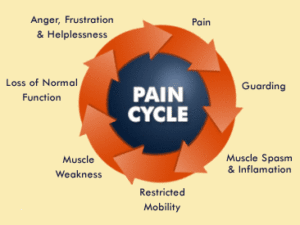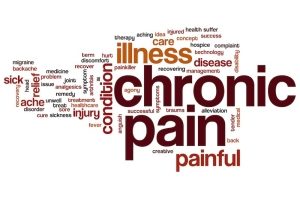Effects of Chronic Pain on Mental Health
I got a severe sports injury when I was around 16 years old. Sparing you all of the medical jargon, I did survive and my body parts aligned alright again, but I was left with chronic pain. Medical definitions of chronic pain define it as pain that lasts beyond a certain interval of time. Through lived experience, the chronic pain seems to be this unending constant source of pain that has over time normalized into a way of being for me. Initial days with it was maddening, I kept waiting for the pain to go away, for some treatment to help, suffice to say none of it did. Now it is a dull throbbing part of my everyday existence, something that I’ve made my peace with, albeit kicking and screaming. There are days when I wake up to so much pain, it is blinding. There are days of so much continuous pain, probably exacerbated by strain or excessive activity that falling asleep can become impossible.

I have tried physiotherapy, medication, Ayurveda and pretty much anything anyone has suggested – absolutely nothing has worked. Some things may help ease some of the pain or reduce it for a certain time period, but its back with a vengeance after some time. For the longest time, I believed this to be a personal anomaly until a general online search yielded pages after pages on chronic pain related material: accounts of personal stories, research, treatments and the like.
Chronic pain is a less talked about the lived reality of several individuals. Having persistent pain anywhere in your body, that may impair functioning, or at least make it more frustrating to just survive, is bound to have an effect on one’s mental health. Chronic pain affects 30 percent of the adult population in India. It yet remains to be untreated or undertreated. Depression is more prevalent in chronic pain patients than in the general population as a consequence of the presence of chronic pain. Funding for research towards addressing chronic pain is extremely low and therefore, it continues to stay out of the mainstream problems despite a substantial number of people suffering from chronic pain. Chronic pain is an increasingly pertinent public health issue that needs resolving for a healthier population for any nation, especially India. Chronic pain can have a debilitating effect on a person’s mental health. Chronic pain can cause feelings of sadness, hopelessness, anxiety, and anger. In some cases, such pain can also be a manifestation of a mental illness, like depression. Chronic pain can vastly hamper a person’s quality of life.

What has worked for me? A certain blend of ignorance and years of coming to terms with the pain. Accepting that the pain has no solution has taken me several years, the effect of it on my mental health has been immense. There are days when it has pushed me deeper into an abyss of depression. Living with pain daily is an immense source of stress and fatigue which compounds other everyday stressors. Self-care and knowing when to let your body rest is important. Without sounding escapist, developing a certain ignorance for the pain has worked for me. Focusing energies and my thought process towards other things can also be helpful. Meditation, physical exercise if possible, and a healthy diet provide a good support system, to manage if not reduce the pain. I wouldn’t say I am in any place to offer solutions as I’m still looking for one that works in totality for me. What I can do though is offer community and support, if you want to talk to someone about this, do email us at thethoughtproject.india@gmail.com – this is in no way a substitute for professional care.
This is part of a collaborative series between Arguendo and The Thought Project.
Please see this article for further information on stress and how it affects functioning.



Leave a Reply